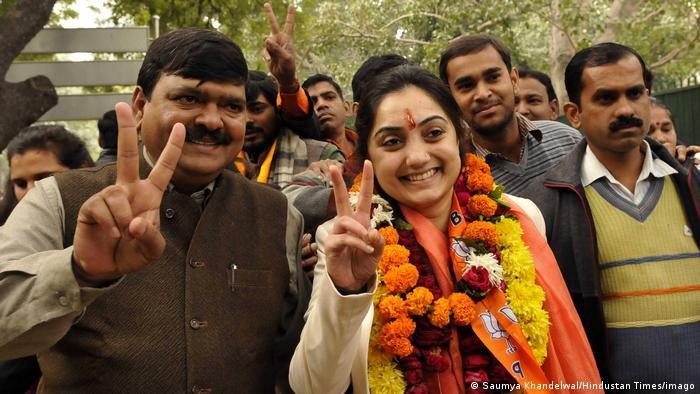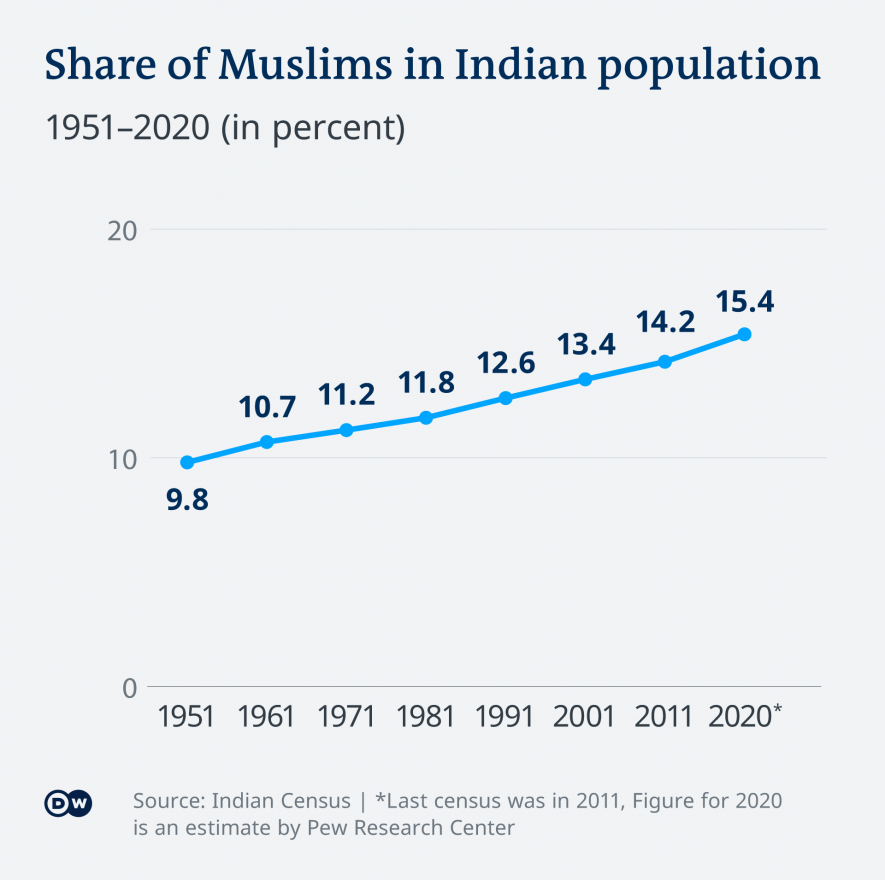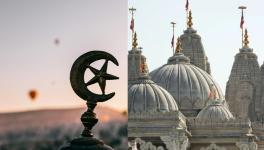'Islamophobia' Controversy: Why India Cannot Risk a Fallout With the Gulf

The BJP has suspended Nupur Sharma over her comments
India has been at the receiving end of a strong diplomatic backlash from a number of Muslim-majority nations over the past few days after two spokespersons of the country's ruling Bharatiya Janata Party (BJP) made contentious remarks on the Prophet Muhammad.
Nupur Sharma, a spokesperson for Prime Minister Narendra Modi's BJP, commented on the prophet's private life during a recent heated TV debate, sparking furor among Muslims from both within and outside India.
Many Islamic nations have demanded an apology from the Indian government and there have also been calls for a boycott of Indian products.
New Delhi went into damage control and tried to distance itself from the controversial comments by saying that they did not in any way reflect the Indian government's views.
The BJP has suspended Sharma from the party for expressing "views contrary to the party's position" and said it "respects all religions." The party also expelled another spokesman, Naveen Kumar Jindal, over comments he made about Islam on social media.
Furthermore, the BJP instructed officials to be "extremely cautious" when talking about religion on public platforms.
Tensions between Hindus and Muslims
Police in the Indian capital New Delhi said they had registered a case against the suspended spokeswoman for "inciting people on divisive lines." Authorities also arrested a BJP youth leader for posting anti-Muslim comments on social media.
"I think the government has taken the issue seriously. At all levels, it has stressed that all religions are equal and it has acted expeditiously on this incident. We cannot afford to upset our friendly relations with the Arab world," Veena Sikri, a former diplomat and a member of the Forum of Former Ambassadors of India, told DW.
The controversy comes against the backdrop of growing criticism of how Muslims are being treated in the South Asian country.
Since coming to power nationally in 2014, Modi's government and the BJP have been accused of championing Hindu nationalist causes and discriminating against Muslims.
Critics say the BJP rule has emboldened hardline Hindu groups.
Tensions between Hindus and Muslims — who make up around 15% of India's 1.35 billion population — appear to be on the rise, with growing disagreements between the two communities over issues such as disputed places of worship and the wearing of head scarves in educational institutions, among others.
The BJP, however, has repeatedly denied any rise in religious tensions under Modi's premiership.

A key region for India
The blowback from Muslim countries has become a major diplomatic challenge for Modi who in recent years has cultivated strong ties to energy-rich Islamic nations, particularly in the Persian Gulf.
Relations with the Gulf Cooperation Council (GCC) — a club consisting of Saudi Arabia, the UAE, Qatar, Kuwait, Oman and Bahrain — are extremely important for India.
The region is a major source of India's energy supplies — accounting for around 60% of India's crude imports — and foreign remittances. It also hosts millions of Indian migrant laborers, whose well-being is of critical importance to New Delhi.
Commerce between the two sides has been growing rapidly, with India's exports to the GCC increasing over 58% year-on-year to about $44 billion in 2021, and imports jumping over 85% to $110.73 billion.
New Delhi is also reportedly looking at negotiating a free trade agreement with the grouping.
'India needs them more'
While these countries hadn't been overtly critical of the Modi government's policies vis-à-vis Indian Muslims, they condemned the now-suspended spokespersons' controversial remarks, indicating that insulting the Prophet was a red line. Some countries also summoned Indian ambassadors to express their disappointment.
Happymon Jacob, who teaches foreign policy at Delhi's Jawaharlal Nehru University, said India cannot fend off criticism from influential regional powers in West Asia unlike criticism from the West.
"The recent incident has highlighted the undeniable danger of unconstrained domestic extremism harming India's policy objectives," he told DW, adding that New Delhi's foreign policy should not be undermined by hate speech and communal politics.
"India needs the West Asian states more than they need India," said Jacob.
Edited by: Srinivas Mazumdaru
Get the latest reports & analysis with people's perspective on Protests, movements & deep analytical videos, discussions of the current affairs in your Telegram app. Subscribe to NewsClick's Telegram channel & get Real-Time updates on stories, as they get published on our website.
























